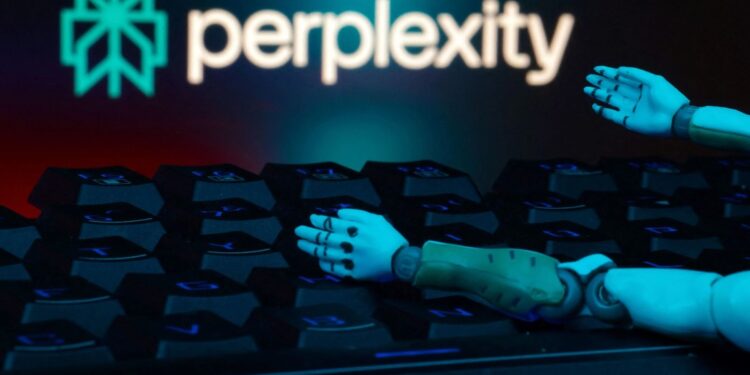AI-powered search engine Perplexity has vehemently rejected legal claims from the BBC, which alleges the startup has unlawfully utilized its copyrighted news material to train its AI models and generate direct answers for users.
The escalating dispute highlights the growing tension between traditional news publishers and AI firms over the fair use of online content.
In a strong rebuttal, Perplexity dismissed the BBC’s accusations as “manipulative and opportunistic,” asserting that the British broadcaster possesses “a fundamental misunderstanding of technology, the internet, and intellectual property law.”
This comes after the BBC reportedly sent a letter to Perplexity CEO Aravind Srinivas, demanding the cessation of content scraping, deletion of any BBC material used for AI development, and a proposal for financial compensation.
The BBC’s core argument centers on the belief that Perplexity has reproduced significant portions of its content, including recently published articles, potentially undermining the BBC’s reputation for impartial journalism and eroding public trust. They cite internal research claiming that a considerable percentage of Perplexity’s responses drawing from BBC sources contained inaccuracies or lacked proper context, thus damaging the broadcaster’s brand and the trust of UK license fee-payers.
The BBC also argues that such practices threaten the financial sustainability of news organizations by diverting audience traffic and devaluing original journalism.
Perplexity, however, maintains that it does not build or train foundational large language models. Instead, it acts as an interface, providing users access to models from major AI developers like OpenAI, Google, and Anthropic, while its own system refines these outputs for accuracy.
The company draws parallels between its operations and those of traditional search engines, which aggregate publicly available information, and has indicated a willingness to explore revenue-sharing programs with publishers, a move already initiated with other media outlets.
This legal confrontation is not an isolated incident. Perplexity has previously faced similar allegations from other prominent news organizations, including Forbes, Wired, and Dow Jones, the latter having filed a lawsuit citing “a massive amount of illegal copying.”
The outcome of the BBC’s challenge against Perplexity is anticipated to set a significant precedent for how copyright laws will apply to AI training data and the broader landscape of AI-driven content aggregation.










![Online Scam Cases Continue to Rise Despite Crackdowns on Foreign Fraud Networks [Myanmar] Online Scam Cases Continue to Rise Despite Crackdowns on Foreign Fraud Networks [Myanmar]](https://sumtrix.com/wp-content/uploads/2025/06/30-12-120x86.jpg)




